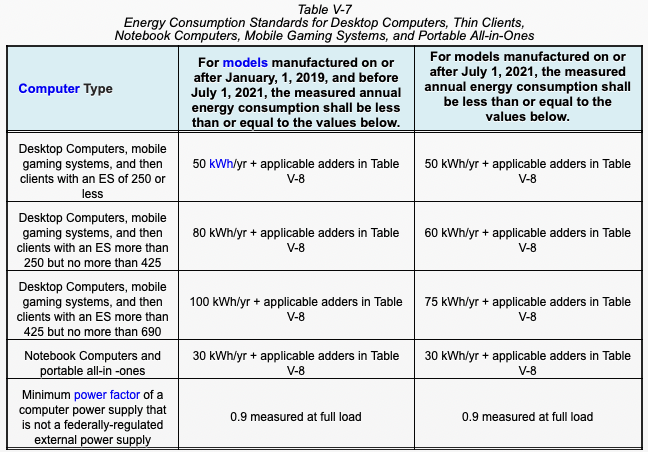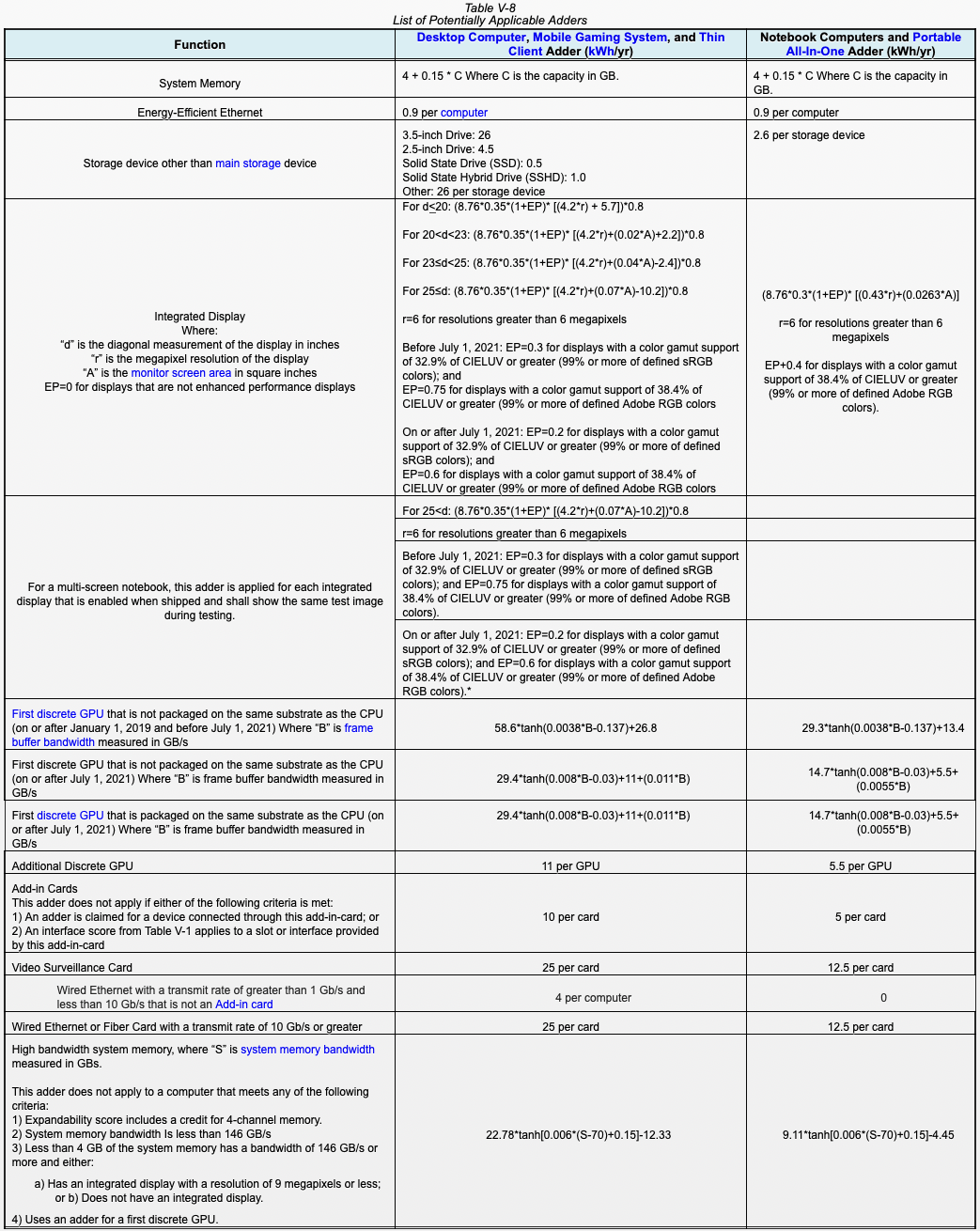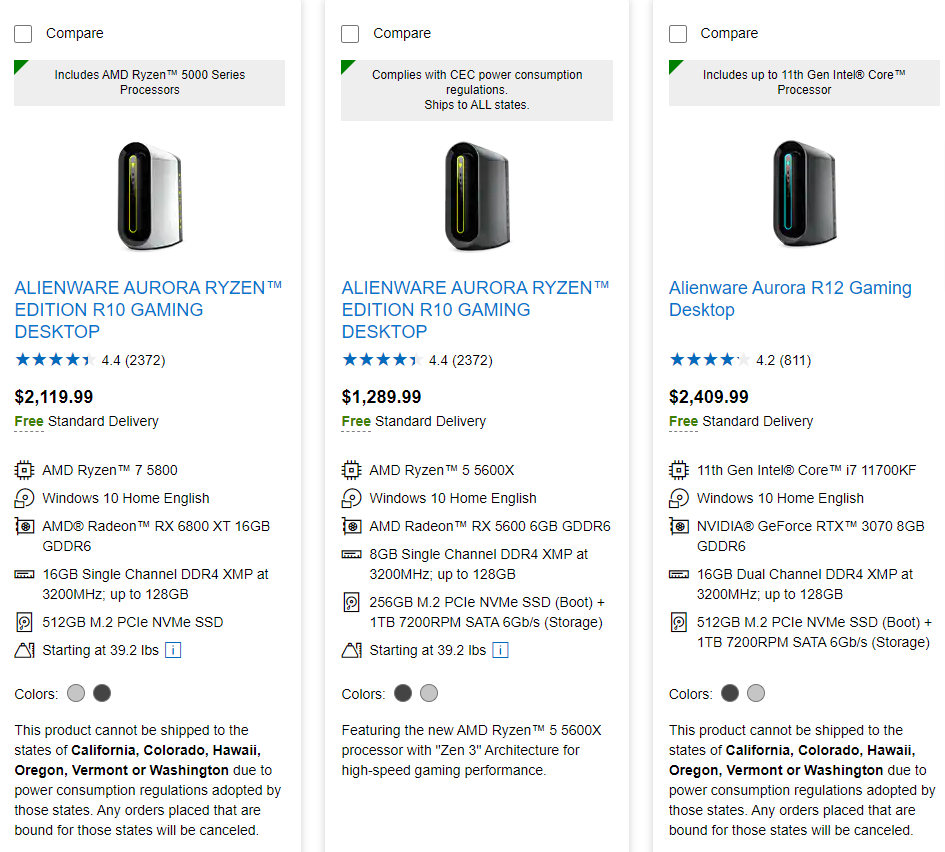Dell Cannot Ship Alienware PCs to Certain US States Due to Power Regulations
High-end PCs sales excluded in certain states
Sometimes the fight for energy efficiency and low power consumption takes rather ugly forms. High-performance desktop gaming PCs obviously consume a lot of power and their relative power efficiency is lower when compared to that of small form-factor systems. Which is why Dell can no longer ship some of its Alienware gaming desktops to California, Colorado, and some other states. There are a number of catches though.
Dell's high-performance Aurora R10 and Aurora R12 (both Intel and AMD-based) desktops "cannot be shipped to the states of California, Colorado, Hawaii, Oregon, Vermont or Washington due to power consumption regulations adopted by those states," a notice over the company's website reads. The reason why Dell cannot ship such systems to California is because the California Energy Commission (CEC) adopted tighter appliance energy principles that outline a compulsory energy efficiency standard for PCs starting July 1, The Register reports.
The new standards are largely based on Energy Star Computer Program and define power consumption of PCs (all kinds of PCs, including thin clients and handheld devices) in non-active states (short-idle, long-idle, sleep, and off) as well as their maximum power consumption per year. All types of power consumption are tied to the PC's expandability score (ES) (its concept was described by Energy Star several years ago) that takes into account things like high-performance graphics cards, system memory bandwidth, high-speed external ports, and other things.


Starting from July 1, 2021, high-end desktops can consume no more than 75 kWhr/year, but if it is equipped with a discrete graphics card or some other adder (from the ES list), its maximum power consumption can be increased based on bandwidth of graphics card's onboard memory. The problem is that even with the adders included, Dell's Alienware gaming systems will not comply with the new requirements.
Dell's Alienware is obviously not the only boutique PC maker in the U.S., but a quick check of other makers of high-performance gaming systems and workstations reveals that they do not have similar alerts for their customers in California and other states. It is unclear whether their systems comply with the tighter requirements, or they are awaiting instructions to update their sites. Meanwhile, it is clear that over time the new regulations will affect all high-performance machines.
It should be noted that the new standards do not cover DIY PCs, so enthusiast who have enough time, effort, and experience can build whatever PCs they like. Furthermore, it is logical to expect PC makers to offer systems without certain components (which will be installed by the end-user) in a bid to comply with tighter regulations, but still offer products to their customers.
Get Tom's Hardware's best news and in-depth reviews, straight to your inbox.

Anton Shilov is a contributing writer at Tom’s Hardware. Over the past couple of decades, he has covered everything from CPUs and GPUs to supercomputers and from modern process technologies and latest fab tools to high-tech industry trends.
-
Considering recent heat waves and use of A/C I don't blame them. It's a matter of time when other products are affected. When car industry goes electric and all.Reply
-
ohio_buckeye Why not give subsidies to homeowners/businesses to install solar panels on roofs and windows, maybe even develop siding for houses that is solar panels. If they wouldn't change anything like that, but would give incentives to people and make it affordable to do that, that would likely reduce strain on the grid because if you got a lot of energy from solar at your home, you wouldn't have to pull as much from the grid I wouldn't think.Reply -
hallby81 Reply
That would make too much sense, especially for those states. But your definitely right, subsidies for solar w/ storage battery would help a lot. It would help a lot in any state except maybe Alaska. But instead of doing whats right, they would rather punish everyone with ineffective power consumption rules by mandating what electronic devices and appliances they can have in there houses.ohio_buckeye said:Why not give subsidies to homeowners/businesses to install solar panels on roofs and windows, maybe even develop siding for houses that is solar panels. If they wouldn't change anything like that, but would give incentives to people and make it affordable to do that, that would likely reduce strain on the grid because if you got a lot of energy from solar at your home, you wouldn't have to pull as much from the grid I wouldn't think. -
ThatMouse This is kind of ridiculous trying to make it illegal to play video games or do video rendering, but it doesn't actually prevent that.Reply -
RareAir23 Well, with what's going on with Alienware this is the genesis point of the story in question. Question is where does it truly end? Alienware announced this what? Yesterday? hp (who makes the Omen gaming PC line) was doing massive changes to their online store last night shutting it down for maintenance. Today Alienware. Tomorrow potentially hp. Next day Falcon Northwest, Origin PC, Digital Storm and Maingear (as examples). Being that California and 5 other states are doing this <REMOVED> don't be surprised if they do not stop with boutique builders. They could (keyword and emphasis being: could) continue by confiscating DIY gaming PC's door to door that violate policy and/or banning certain CPU's, GPU's, PSU's from being shipped/sold to the state. People think California wouldn't do that but this...is California we're talking about and with Gov. Newsom calling the shots don't be surprised if he at least tries all of what I just said and attempt to make it into law in the name of "saving the world from climate change" because Newsom is as dead serious about that as any leader in the world. Out!Reply
MOD EDIT: Keep the politics out of it. -
sizzling Interesting, the EU were talking about something similar a few years back but nothing seems to have come from it, yet. The EU have already put power limits in place for other technologies, I know vacuum cleaners have had a limit for many years now. It will put more pressure on manufacturers to focus on power efficiency but at what cost to performance evolution.Reply -
hotaru.hino Reply
I believe California already offers or had offered such, including tax credits. Also they passed a mandate that every new home built from Jan 2020 must have solar panels.ohio_buckeye said:Why not give subsidies to homeowners/businesses to install solar panels on roofs and windows, maybe even develop siding for houses that is solar panels. -
ohio_buckeye I think that technology is moving that way anyway. I don't know that they'd have the manpower to go door to door. Or if they would. Thankfully I don't live in California. No desire to. But I could see them attempting like someone else said, to limit what graphics cards or power supplies or cpus are available. However, what could happen is you could end up with an underground marketplace, kind of like you picture for New York with guys selling fake rolex watches or something. Thinking about that is comical, but sad too. How much you bet computer shows start up in Nevada or neighboring states?Reply -
hotaru.hino The thing is California is still a huge market in the US. Whatever California does, a lot of companies will adjust to that in order to stay in business, and rather than have another model for sale in more relaxed states, they just sell the "California" version. Take cars for instance. California's strict emissions standards have propagated to basically every state passively because car manufacturers don't want to effectively double the number of trims for a car just for one state (or several, since a lot of other states tend to follow in California's wake).Reply
If anything this'll be a minor inconvenience to Dell and other PC manufacturers. -
bigdragon I understand the drive to push electronics manufacturers towards producing more efficient devices. Demand on the power grid is increasing, and generation is not. Worse, dirty power generation is far more economical than the green stuff. I get where CA and friends are coming from. However, this seems like one of those nuisance laws that will redirect computing and electronics revenues outside the state. I think it would have been more effective to target businesses and educators who have legions of PCs on 24/7 regardless of whether or not they're in use or getting a 10-minute update.Reply
Hey, woah, you can't do that. The HOA/Condo Board says that solar panels are an eyesore. You can't have them. No solar shingles or windows or siding or anything else either. You shall be limited to the same cookie cutter asphalt shingles and vinyl siding as everyone else. Conform. We can't have the HOA/Condo Board president's home worth less than the person with solar-everything and an EV! Yes, saving energy is important. Yes, climate change is bad. Yes, wildfires are bad. But HOA/Condo rules are rules!!!1! Our hands are tied!!!1!1!ohio_buckeye said:Why not give subsidies to homeowners/businesses to install solar panels on roofs and windows, maybe even develop siding for houses that is solar panels. If they wouldn't change anything like that, but would give incentives to people and make it affordable to do that, that would likely reduce strain on the grid because if you got a lot of energy from solar at your home, you wouldn't have to pull as much from the grid I wouldn't think.
